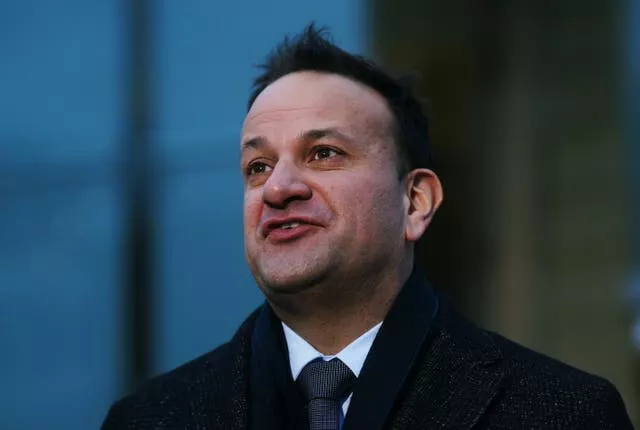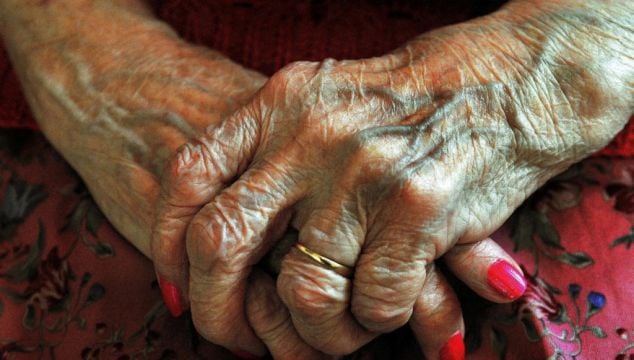The Attorney General has been asked to look into a legal strategy in relation to people who were entitled to nursing home care provided by the State decades ago.
It comes after the Irish Mail on Sunday reported a whistle-blower's claims of a secret government strategy to limit pay-outs to people on medical cards – who would have been entitled to nursing home care provided by the State – by settling cases out of court.
Taoiseach Leo Varadkar said on Monday he was not among the senior government figures who had seen a 2011 memo that allegedly outlined this legal strategy regarding those who had taken court cases.
In 2010, the Office of the Ombudsman Emily O’Reilly published an investigation based on more than 1,000 complaints made since 1985 on behalf of older people who were unable to get long-term nursing home care from the HSE, and as a result had to use private nursing homes.
The Ombudsman’s report stated that “health boards had, for decades, been charging medical-card holders for in-patient services despite having been warned by several different legal advisers that the practice was illegal”.
She said that after four decades marked by “confusion, misinformation and inconsistency” the State was facing “several hundred legal actions” from families seeking compensation for the costs incurred in having to use private nursing homes.
The Department of Health has confirmed on Monday that the Attorney General is now examining the issue.

Asked about the strategy, Mr Varadkar said he did not believe he was among those who had been sent the memo, and that work had been done over the weekend to establish what had happened.
“This relates to a 2011 memo which was – it would appear – circulated to four members (of government). None of the people who are in the current government, I understand, were on the distribution list for this memo.
“So as far as I know, I haven’t seen it and didn’t at the time. But we are trying to check out all those facts,” he told Newstalk.
He said that the story is “a lot more complex” than it appears – arguing that the figures on compensation costs were estimations and “are not in any way still valid”.
He also said that there hasn’t been a case lodged since 2014.
“This is a memo from 12 years ago, it would appear.
“What it seems to relate to is nursing home charges prior to the Fair Deal (scheme), so these would have been people who paid for private nursing homes.
“This relates to people who paid for private nursing homes. They argued that because they had a medical card they were entitled to a full refund of the cost regardless of the cost or regardless of which nursing home they chose – the State has never conceded that.
“But there have been some cases that have been settled and it will be the case from time to time that Government departments will settle, but they’re not all settled, there was never a test case that went to trial.
“It needs to be looked into properly, but I think it’s fair to say that the way it was presented on Sunday, the real picture is a lot more complex than that.
“Certainly, what I can say, I was never party to devising or agreeing a legal strategy in relation to nursing home charges,” he said.
When asked about the issue, Housing Minister Darragh O’Brien said he had not seen the detail of it.
“It will be a matter that we discuss with colleagues and the appropriate steps that need to be taken will be taken,” he said.
In a statement to the PA news agency, the Department of Health said: “The Government has asked the Attorney General to look at the issue. This issue dates from the 1970s and concerned older people who were in nursing homes.
“Issues relating to the legal basis for charges paid by nursing home residents were highlighted in 2005 following a Supreme Court judgment.
“The Health Repayment Scheme was put in place by the Government of the day in 2006 to repay eligible long-stay residents in public facilities.
“Since 2009, the Nursing Homes Support Scheme has provided a statutory basis for individuals to make contributions towards their public or private nursing home costs.”
In February 2005, Health and Children’s Minister Mary Harney told the Seanad that the Supreme Court had upheld the principle of people in long-term institutions making contributions towards their care.
“That principle of making such a contribution has been upheld by the Supreme Court. Those aspects of the (Health Amendment) Bill that provide a legal basis for doing so were found by the Supreme Court to be constitutional,” she said.







